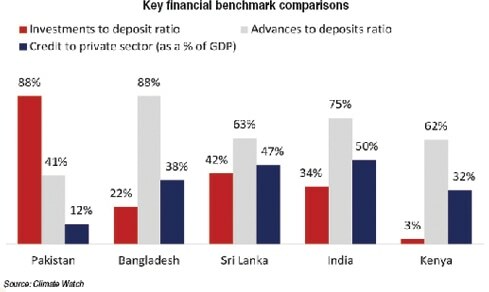KARACHI, Feb 6: Moody’s Investors Service said in its annual report that Pakistan’s B3 rating reflects the country’s low economic, institutional and government financial strengths, and its high susceptibility to event risk.
”The rating outlook is stable, although pressures on the balance of payments have re-emerged,” said a release issued by the Moody’s on Monday.
The broad policy framework has not been robust enough to ensure support from donors and creditors, or to effectively contain macroeconomic imbalances, which have arisen since the global financial crisis in 2008, said the report.
Moody’s made its assessment in its latest analysis of Pakistan, and which assesses the country according to four factors: economic strength, which is characterised as ‘low’; institutional strength, ‘low’; government financial strength, ‘low’; and susceptibility to event risk, ‘high’.
Pakistan’s ‘low’ economic strength reflects its relatively weak economic growth trend since the 2008 global financial crisis, and which has also been constrained by policy-framework and structural weaknesses.
Macroeconomic imbalances were manifest in a chronically high level of inflation and renewed pressures on the payments position in the second half of 2011, said the report.
With the second factor, the Moody’s report says that Pakistan’s ‘low’ institutional strength is partly a reflection of the factious character of politics in Pakistan.
Tensions between the civilian government and military pose a threat to political stability. Pakistan’s ‘low’ government financial strength, the third factor, reflects the presence of a high debt burden and very large refinancing requirements.
The cost of the 2010 floods, the delay in the introduction of the Reformed General Sales Tax (RGST), and faltering donor support further increased pressure on government finances.
In terms of the country’s “High” Susceptibility to event risk, the fourth factor, Moody’s looks at political risk including domestic and geopolitical threats economic and banking system risks.
The report says that the recent deterioration in Pakistan’s relations with the US and the end of the IMF programme remove support to the external balance of payments.
“Although official foreign exchange reserves presently remain adequate, their decline since mid-2011 underscores that the risk of a currency crisis remains high,” said the report.












































Dear visitor, the comments section is undergoing an overhaul and will return soon.